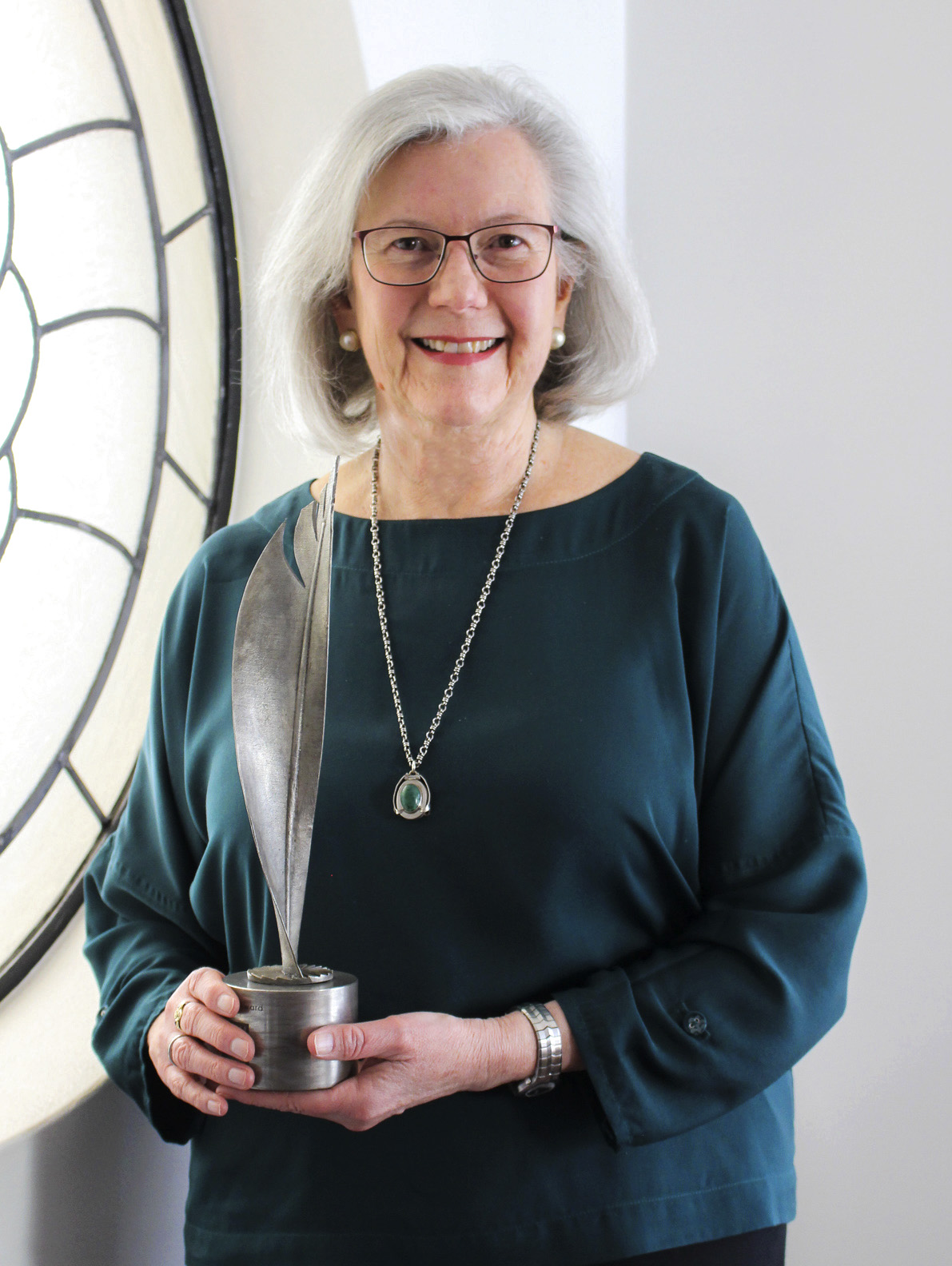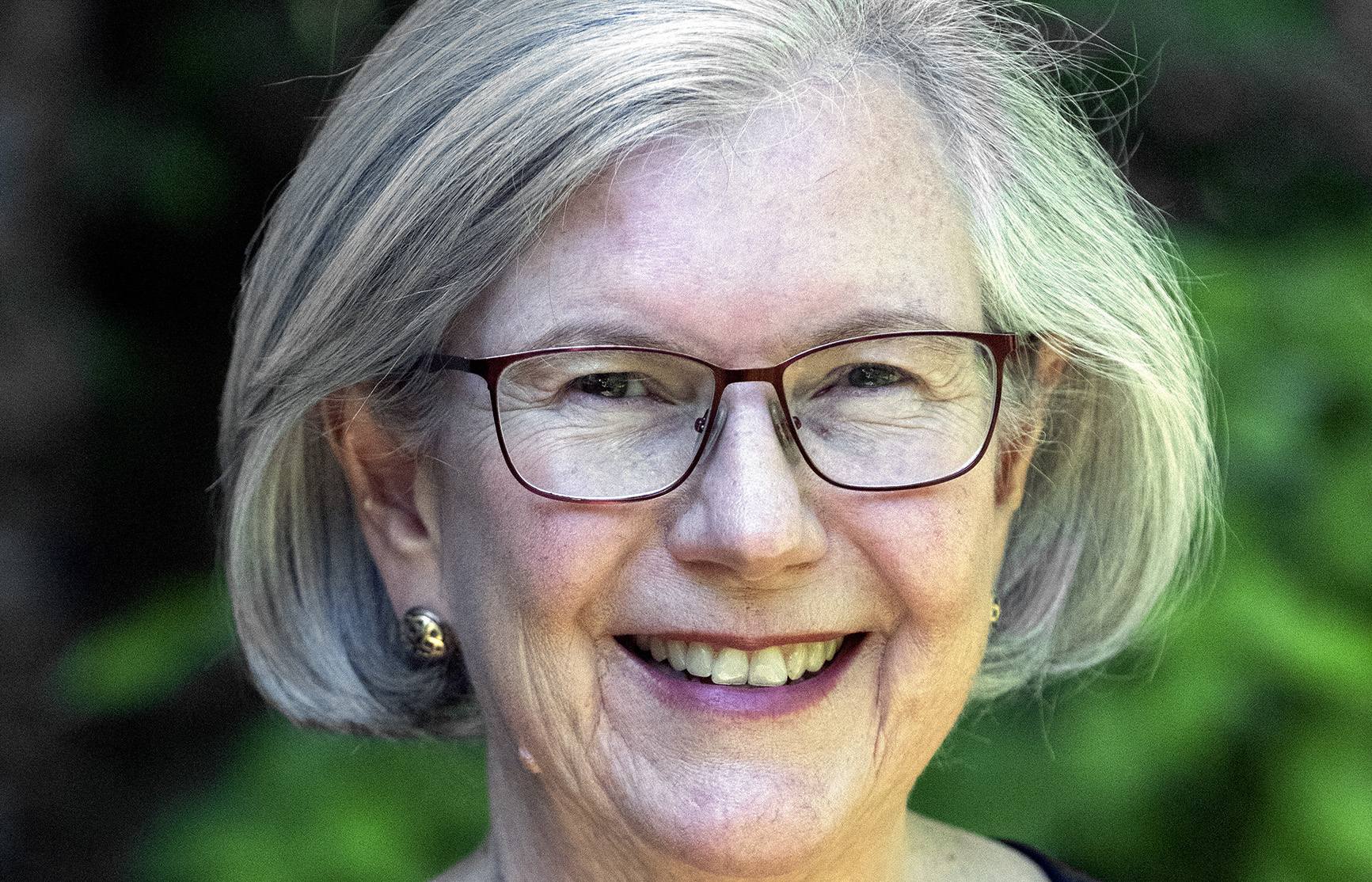As a child, South Africa’s Prof Michèle Ramsay never dreamt of a future in academia or receiving an “Oscar in Science”. Instead, she was interested in climbing trees and pretending they were spaceships.
By the time she started her first year at the University of Stellenbosch, Ramsay had lived in four countries — South Africa (Vereeniging), Mexico, Canada and the United Kingdom. Her father was an engineer and the family followed him to where his work took him. It is these experiences that gave Ramsay valuable insight into the diversity of people and which shaped her worldview.
Today, Ramsay is a professor of human genetics and director of the Sydney Brenner Institute for Molecular Bioscience at Wits University. Last year, Ramsay won the National Science and Technology Forum-South32 Lifetime Achievement Award for pioneering genomic medicine approaches in Africa, and for leading a transcontinental study to search for factors that contribute to diseases among people living on the African continent. The awards are dubbed the “Oscars of Science”.
Genetics: A passion is born
 Professor Ramsay won the National Science and Technology Forum-South32 Lifetime Achievement Award for pioneering genomic medicine approaches in Africa, and for leading a transcontinental study to search for factors that contribute to diseases among people living on the African continent. (Photo: Supplied / Spotlight)
Professor Ramsay won the National Science and Technology Forum-South32 Lifetime Achievement Award for pioneering genomic medicine approaches in Africa, and for leading a transcontinental study to search for factors that contribute to diseases among people living on the African continent. (Photo: Supplied / Spotlight)
“Well, I can definitely tell you, I never dreamt of being an academic,” says Ramsay. “That came much later. I did enjoy biology at school, but my real interest started when I got to university and had my first exposure to the field of genetics. After three lectures, I knew this was what I wanted to do.
“At that stage, it didn’t matter to me if it was human, plant or animal genetics. Inheritance patterns were so logical and interesting.”
Although being an academic was never part of her plan, she now heads a research institute building knowledge on African genomic diversity and providing clues for genetic susceptibility to many diseases.
Ramsay says the best part of her journey has been growing alongside a new field of knowledge — molecular genetics. “When I started, so little was known about the human genome. It was unthinkable that we could look at a person’s DNA and make a diagnosis for a disease or perform a prenatal diagnosis where we could diagnose babies in utero to see if they inherited a genetic disease from their parents.
“I feel that I have been so fortunate in my career to have experienced all these changes and to work in a field that is in its heyday right now.”
Ramsay says for years they have been working in labs on the human genome and now, with Covid-19, the field of genomics has become popular since everyone is talking about it.
Before joining a Zoom meeting with Spotlight, she was at another meeting where they are planning the third international summit on human genome editing. Genome editing involves changing an organism’s DNA using new technologies.
“There have been huge strides in the field and it is extraordinary that the scientific community is developing technologies to edit genomes. There are so many ethical issues for the field, in addition to the scientific challenges. We ask many questions, such as should it be done, is it safe, will there be equity in terms of access and affordability? [There are] so many things to think about,” she says.
‘We felt like pioneers’
Ramsay says that when she finished her postdoctoral fellowship in London in 1989, she had the option to stay there. “But I wanted to come back to South Africa. I knew I could make a meaningful contribution in my country and I’m happy that I came back,” she says.
Ramsay was part of a team that set up a DNA diagnostic laboratory for genetic diseases in South Africa in 1980.
“We felt like pioneers. The techniques were very new and we had to teach ourselves and learn as we went along,” she says. “A three-month student exchange visit to the Weizmann Institute of Science in Israel at that time was a huge help. It was an interesting time because we had to put everything together for our experiments,” she says, adding that there were no kits and very little expertise. They had to develop reagents and plan experiments, putting all the components together.
“One of the highlights of my career was setting up the molecular diagnostic laboratory to do the first prenatal diagnosis by DNA analysis in South Africa. We published this in 1984, not long after the methods had first been applied elsewhere in the world. It was good to know that we could do in South Africa what was at the forefront elsewhere in the world,” she says.
Research for the future
Her interest has now turned to understanding interactions between genetic variations and the environment.
“In terms of the health of a person, this is really a difficult thing to study because there are endless combinations, and trying to understand what is relevant and important is not so easy,” she tells Spotlight.
“Another area of research at our institute is to understand how people respond to drugs. For example, if there are 100 people with hypertension, some will respond to one drug and normalise their blood pressure, but for other people, that drug won’t work and doctors need to try another drug. It is often a trial-and-error process. What do you start off with first? But, if you understand the genetics behind the drug response, that can often help a doctor find the right drug quicker for their individual patients,” she says.
“This is what we would like to be able to do in the future. We would be developing this field that we call precision medicine and it will be appropriate for Africans because we are doing the research here. It is about having enough information about a patient to help a doctor get to the right treatment at the right time in a much shorter period.”
Covid-19 and the host
Another thing that interests her is the role of the genome of the host following SARS-CoV-2 infection. She explains that the person who becomes infected by the virus is the host. The viral genome is being studied, but few people are looking at the host genome.
“What we do know is that when the virus infects the host, the response is different between people. The large majority of people don’t even know that they are infected. Some may have a cough or an elevated temperature for a while and they go on with life. Then there are others who have to go to hospital. Some of them will get oxygen, take a week to recover, and go home. [Others] get progressively more ill, needing a ventilator, and some of them die.
“Trying to understand why this happens is fascinating. We have started a project to explore the genetic contribution of the host and why some people are more likely to become severely ill,” she says.
“If you knew who is more likely to become severely ill, doctors could start treatment much sooner and have better outcomes. There are groups all over the world doing this research, but it hasn’t been done on Africans (people living on the African continent). This is the focus of our work.
“But of course, Africa is not homogenous. It’s a very complex continent of people with different genetic backgrounds and different environments,” she says, adding that because Africa is the cradle of humankind, there is more genetic variation in the people of Africa than anywhere else in the world, yet it is understudied.
Living through Covid-19
As with most people, the pandemic forced Ramsay to shift into a lower gear and slow down.
“The things that are important to me during this time are the small things, like walking in my garden. I remember when we had the first hard lockdown, how I watched the strelitzias every day as the buds slowly opened up into magnificent flowers. This is amazingly uplifting,” she says. “I didn’t do that before because I was always rushing off to work and rushing back again, often after dark. I think the pandemic has made me appreciate many joyful small things in life.”
 Professor Ramsay says the secret to knitting is to find big needles and beautiful wool. (Photo: Supplied / Spotlight)
Professor Ramsay says the secret to knitting is to find big needles and beautiful wool. (Photo: Supplied / Spotlight)
Among her reading stack is The Promised Land by former US president Barack Obama, which she picks up in between other books.
“I find it a fascinating read. The things he had to overcome during his presidency, and the challenges that he faced. We all face challenges and it’s up to us how we deal with them. What I enjoy is working with people who are willing to learn and to think about making [a] positive change. It is exhausting when people only see the problems,” she says.
The proud mother of two says her son just completed his PhD as a chemical engineer and her daughter is an intern medical doctor.
“As a career woman and a mother, you always feel that you put so much into your work and professional life and that you may have neglected your kids from time to time. I am glad my children seem none the worse for it and I am happy that they have careers of their own ahead of them,” she says, adding that she is also blessed with a husband who is a good listener and has always supported her.
Ramsay says she also took up knitting and is now making a “Covid blanket”.
“The blanket will be a reminder of these challenging times for us in years to come and something to tell our grandchildren about one day. We are having Zoom meetings all the time and when I’m not presenting or taking notes, I actually knit. I find I concentrate better when my hands are busy,” she says.
“The secret to knitting,” Ramsay says, “is to find big needles and beautiful wool colours.” DM/MC
This article is part of Spotlight’s Women in Health series featuring the remarkable contributions of South African women to medicine and science.
This article was produced by Spotlight — health journalism in the public interest.





 Professor Ramsay says the secret to knitting is to find big needles and beautiful wool. (Photo: Supplied / Spotlight)
Professor Ramsay says the secret to knitting is to find big needles and beautiful wool. (Photo: Supplied / Spotlight)